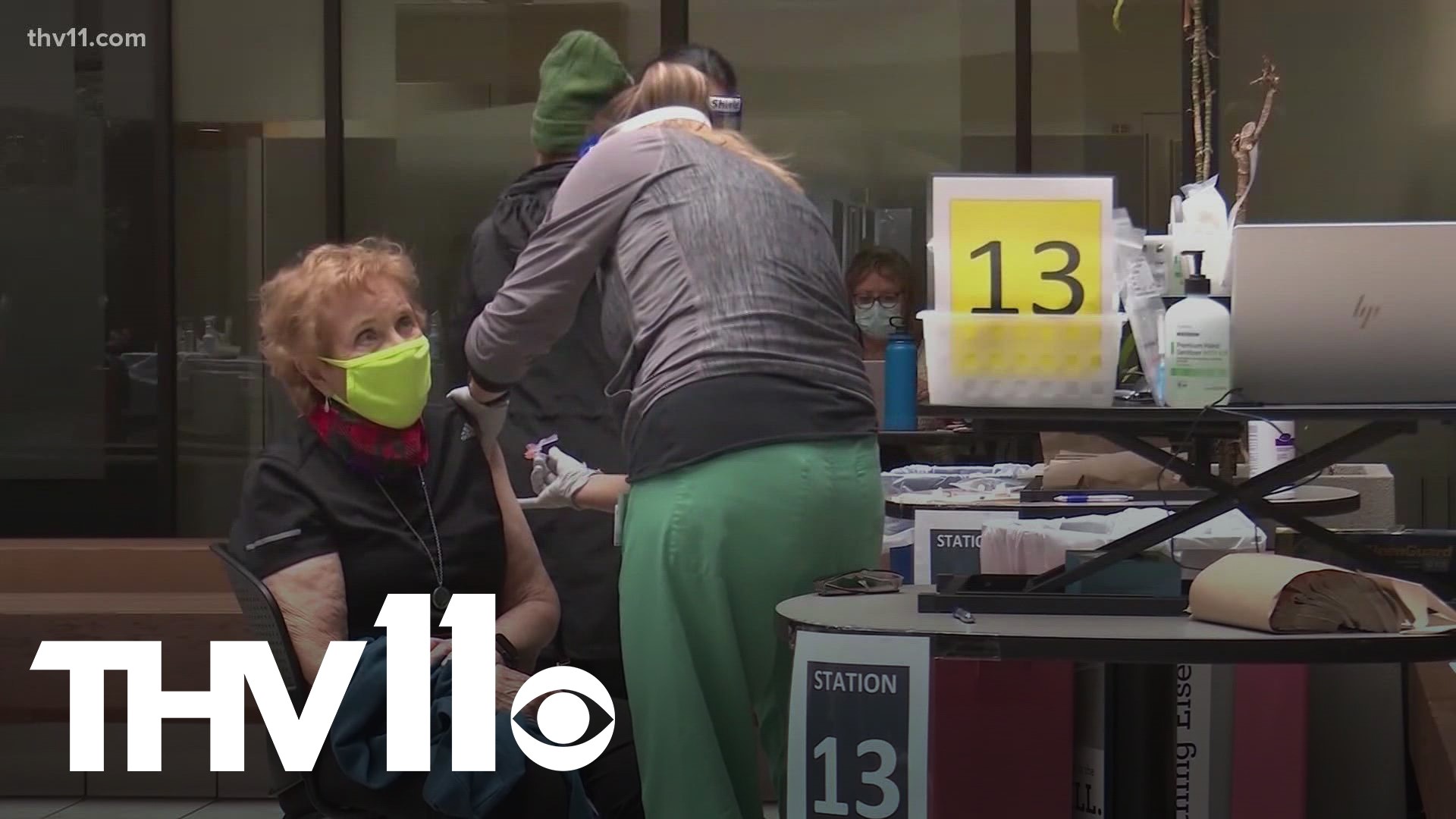LITTLE ROCK, Arkansas — COVID-19 cases have been on the decline for a couple months now.
We started to see cases leveling out as November began, but as we get further into the month we're beginning to see an upward trend.
"I do anticipate that we will have an additional surge," said Dr. Jennifer Dillaha, Chief Medical Officer of Arkansas.
Other states are already seeing yet another COVID-19 surge. Even Europe is experiencing the additional cases.
Despite our vaccination efforts, the delta variant is still spreading.
"We do not have enough people in Arkansas who are immune to COVID-19 to prevent additional surges," said Dr. Dillaha.
But vaccinations have made a huge impact for some of our most vulnerable Arkansans.
During the winter of last year, we were in one of the worst surges of the pandemic with no vaccine and only a few authorized treatments.
The elderly were hit the hardest, especially in nursing homes. But that's also where vaccines made the most drastic difference.
At the peak of the winter surge last year, we had 127 nursing home residents die in a single week. Compare that to just 8 deaths in the summer peak. Clear proof of the vaccines' landslide effectiveness.
When we asked Rachel Bunch, executive director of the Arkansas Health Care Association, if COVID precautions would stay in place during this next surge, she sent a statement saying in part:
Visitation guidelines are regularly reviewed and updated by Centers for Medicare and Medicaid Services, and our facilities monitor and abide by those requirements.
But for the rest of the population with low vaccine rates, the delta variant poses a clear and present danger, especially as it continues to add brand new mutations.
"We need to get our vaccination rates up and for people who have had COVID-19 before, they need to get one because they could get it again," said Dr. Dillaha.

